
50 Must-Read Best Poetry Books
This content contains affiliate links. When you buy through these links, we may earn an affiliate commission.
If you want to get more poetry into your life, why not start with some of the best poetry books there are? I’ve compiled a list of books by the best poets I know to help you jump-start your reading. In some cases, I’ve chosen individual volumes that best represent an author’s work, and in others, I’ve chosen the “selected works” or similar to give you a broad overview.
My selections of the best poetry books include works from ancient writers though Shakespeare’s time, to the Romantics and other 19th century poets, to 20th century poets, and finally to works from contemporary, living writers. Take a look at the list and see if you have any favorite poets to add!
Book descriptions are taken from Goodreads or Amazon.
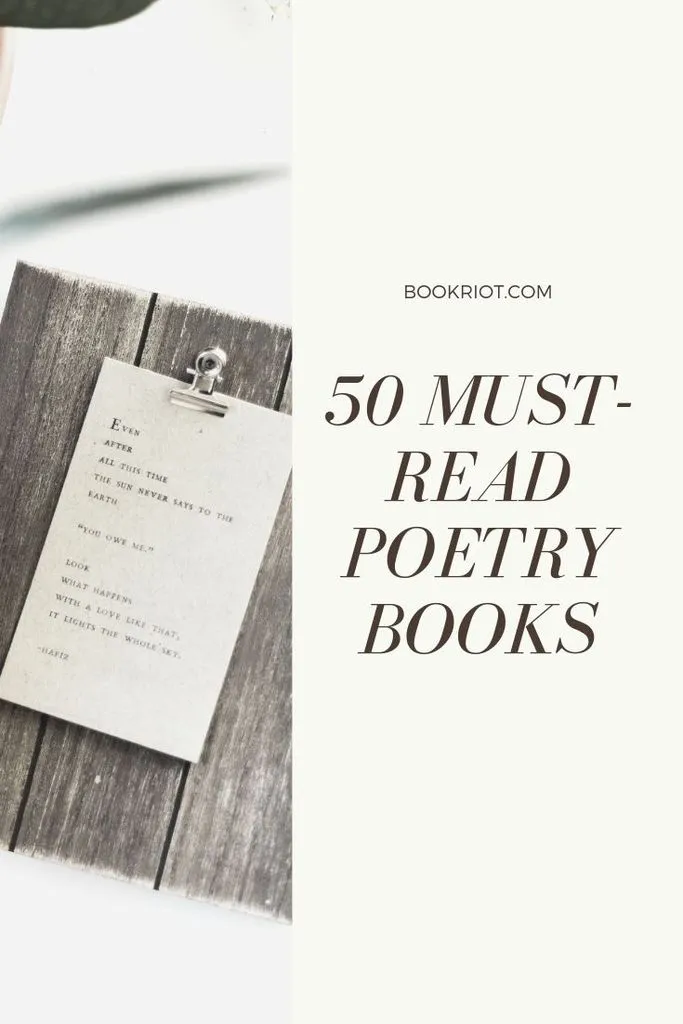
“From poet and classicist Anne Carson comes this translation of the work of Sappho, together with the original Greek. Carson presents all the extant fragments of Sappho’s verse, employing brackets and white space to denote missing text – allowing the reader to imagine the poems as they were written.”
“Basho, one of the greatest of Japanese poets and the master of haiku, was also a Buddhist monk and a life-long traveller. Each poem evokes the natural world – the cherry blossom, the leaping frog, the summer moon or the winter snow – suggesting the smallness of human life in comparison to the vastness and drama of nature.”
“An important and often-quoted literary figure, the English poet Christina Rossetti wrote some of the most beautiful and voluptuous poetry in the English language. Like Emily Dickinson, she lived in self-imposed isolation, writing of God and lost love with a sensuality and passion that seemed to emanate from the soul.”
“Rilke is unquestionably the most significant and compelling poet of romantic transformation, of spiritual quest, that the twentieth century has known. His poems of ecstatic identification with the world exert a seemingly endless fascination for contemporary readers.”
“One of America’s most celebrated poets—and winner of the Pulitzer Prize in 1923—Edna St. Vincent Millay defined a generation with her passionate lyrics and intoxicating voice of liberation.”
“New and Collected Poems: 1931—2001 celebrates seven decades of Czeslaw Milosz’s exceptional career. Widely regarded as one of the greatest poets of our time, Milosz is a master of probing inquiry and graceful expression. Milosz worked with the Polish Resistance movement in Warsaw during World War II and defected to France in 1951. His work brings to bear the political awareness of an exile.”
“Throughout her illustrious career in letters, Maya Angelou gifted, healed, and inspired the world with her words. Now the beauty and spirit of those words live on in this new and complete collection of poetry that reflects and honors the writer’s remarkable life.”
“Carefully curated, these 200 plus poems feature Oliver’s work from her very first book of poetry, No Voyage and Other Poems, published in 1963 at the age of 28, through her most recent collection, Felicity, published in 2015. This timeless volume, arranged by Oliver herself, showcases the beloved poet at her edifying best.”
“This collection gathers poems from throughout Joy Harjo’s twenty-eight-year career, beginning in 1973 in the age marked by the takeover at Wounded Knee and the rejuvenation of indigenous cultures in the world through poetry and music. How We Became Human explores its title question in poems of sustaining grace.”
“Claudia Rankine’s bold new book recounts mounting racial aggressions in ongoing encounters in twenty-first-century daily life and in the media. Some of these encounters are slights, seeming slips of the tongue, and some are intentional offensives in the classroom, at the supermarket, at home, on the tennis court with Serena Williams and the soccer field with Zinedine Zidane, online, on TV-everywhere, all the time.”
“This debut collection is a fast-paced tour of Mojave life and family narrative: A sister fights for or against a brother on meth, and everyone from Antigone, Houdini, Huitzilopochtli, and Jesus is invoked and invited to hash it out.”
Want more recommendations of the best poetry books available? Check out this list of 50 of the Best Poetry Books by Contemporary Authors, 50 Must-Read 2019 Poetry Collections, and even more poetry posts.

The Best Classic Poetry Books
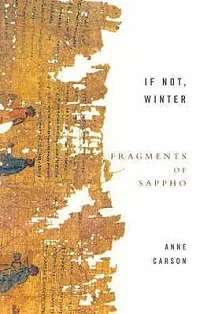 If Not, Winter: Fragments of Sappho by Sappho (died 580 BC), Translated by Anne Carson
If Not, Winter: Fragments of Sappho by Sappho (died 580 BC), Translated by Anne Carson
“From poet and classicist Anne Carson comes this translation of the work of Sappho, together with the original Greek. Carson presents all the extant fragments of Sappho’s verse, employing brackets and white space to denote missing text – allowing the reader to imagine the poems as they were written.”
The Essential Rumi by Rumi (1207–1273), Translated by Coleman Barks
“Rumi was a 13th-century Persian poet, jurist, Islamic scholar, theologian and Sufi mystic who lived in Konya, a city of Ottoman Empire (Today’s Turkey). His poems have been widely translated into many of the world’s languages, and he has been described as the most popular poet and the best-selling poet in the United States.”The Complete Sonnets and Poems by William Shakespeare (1564–1616)
“This is the only fully annotated and modernized edition to bring together Shakespeare’s sonnets as well as all his poems (including those attributed to him after his death) in one volume. A full introduction discusses his development as a poet, and how the poems relate to the plays, and detailed notes explain the language and allusions. While accessibly written, the edition takes account of the most recent scholarship and criticism.”John Donne’s Poetry by John Donne (1572–1631)
“John Donne was an English poet, preacher and a major representative of the metaphysical poets of the period. His works are notable for their realistic and sensual style and include sonnets, love poetry, religious poems, Latin translations, epigrams, elegies, songs, satires and sermons.”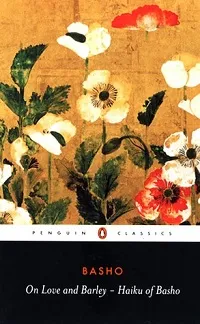 On Love and Barley: Haiku of Basho by Basho (1644–1694), Translated by Lucien Stryk
On Love and Barley: Haiku of Basho by Basho (1644–1694), Translated by Lucien Stryk
“Basho, one of the greatest of Japanese poets and the master of haiku, was also a Buddhist monk and a life-long traveller. Each poem evokes the natural world – the cherry blossom, the leaping frog, the summer moon or the winter snow – suggesting the smallness of human life in comparison to the vastness and drama of nature.”
Songs of Innocence and Experience by William Blake (1757–1827)
“Blake was one of the finest craftsmen of his time, an artist for whom art and poetry were inextricably linked. He was an independent and rebellious thinker, who abhorred pretension and falsity in others. His ‘Songs of Innocence’ are products of this innocent imagination untainted by worldliness, while the ‘Songs of Experience’ resulted from his feelings of indignation and pity for the suffering of mankind.”Lyrical Ballads by William Wordsworth (1770–1850) and Samuel Taylor Coleridge (1772–1834)
“Wordsworth and Coleridge’s joint collection of poems has often been singled out as the founding text of English Romanticism. Within this initially unassuming, anonymous volume were many of the poems that came to define their age and which have continued to delight readers ever since, including The Rime of the Ancient Mariner, the ‘Lucy’ poems … and many more.”Selected Poetry by John Keats (1795–1821)
“Keats published three volumes of poetry before his death at age twenty-five of tuberculosis…His poetry and his remarkable letters reveal a spirit of questing vitality and profound understanding and his final volume, which contains the great odes and the unfinished Hyperion, attests to an astonishing maturity of power.”Leaves of Grass by Walt Whitman (1819–1892)
“[Leaves of Grass is] the incomparable achievement of one of America’s greatest poets—an exuberant, passionate man who loved his country and wrote of it as no other has ever done. Walt Whitman was a singer, thinker, visionary, and citizen extraordinaire.”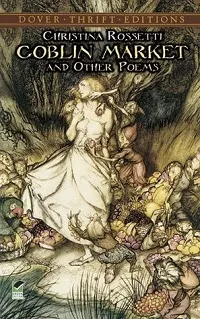 Goblin Market and Other Poems by Christina Rossetti (1830–1894)
Goblin Market and Other Poems by Christina Rossetti (1830–1894)
“An important and often-quoted literary figure, the English poet Christina Rossetti wrote some of the most beautiful and voluptuous poetry in the English language. Like Emily Dickinson, she lived in self-imposed isolation, writing of God and lost love with a sensuality and passion that seemed to emanate from the soul.”
The Complete Poems of Emily Dickinson by Emily Dickinson (1830–1886)
“Only eleven of Emily Dickinson’s poems were published prior to her death in 1886; the startling originality of her work doomed it to obscurity in her lifetime. This book, a distillation of the three-volume Complete Poems, brings together the original texts of all 1,775 poems that Emily Dickinson wrote.”Gerard Manley Hopkins: The Major Works by Gerard Manley Hopkins (1844–1889)
“Gerard Manley Hopkins (1844-89) was one of the most innovative of nineteenth-century poets. During his tragically short life he strove to reconcile his religious and artistic vocations, and this edition demonstrates the range of his interests.”The Best Twentieth-Century Poetry Books
Robert Frost’s Poems by Robert Frost (1874–1963)
“Robert Frost’s Poems contains all of Robert Frost’s best-known poems-and dozens more-in a portable anthology. Here are ‘Birches,’ ‘Mending Wall,’ ‘Stopping by Woods on a Snowy Evening,’ ‘Two Tramps at Mudtime,’ ‘Choose Something Like a Star,’ and ‘The Gift Outright,’ which Frost read at the inauguration of John F. Kennedy.”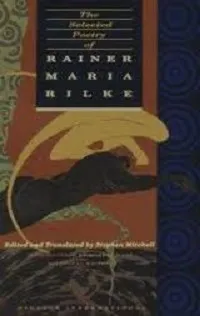 The Selected Poetry of Rainer Maria Rilke by Rainer Maria Rilke (1875–1926), Translated by Stephen Mitchell
The Selected Poetry of Rainer Maria Rilke by Rainer Maria Rilke (1875–1926), Translated by Stephen Mitchell
“Rilke is unquestionably the most significant and compelling poet of romantic transformation, of spiritual quest, that the twentieth century has known. His poems of ecstatic identification with the world exert a seemingly endless fascination for contemporary readers.”
Selected Poems by William Carlos Williams (1883–1963)
“A poet of astonishing range and inventiveness, Williams was at once a daring formal innovator, one of the band of modernists who transformed American poetry, and an intimate, sometimes savagely frank chronicler of the life and landscape of his native New Jersey.”Trilogy by H.D. (Hilda Doolittle) (1886–1961)
“The first book of the Trilogy, ‘The Walls Do Not Fall,’ published in the midst of the ‘fifty thousand incidents’ of the London blitz, maintains the hope that though ‘we have no map; / possibly we will reach haven,/ heaven.’ ‘Tribute to Angels’ describes new life springing from the ruins, and finally, in ‘The Flowering of the Rod’ … faith in love and resurrection is realized in lyric and strongly Biblical imagery.”The Poems of Marianne Moore by Marianne Moore (1887–1972)
“More than thirty years after her death, Marianne Moore continues to be one of America’s most beloved poets. The poems demonstrate Moore’s wide range of interests, moving from witty images of animals, sporting events, and social institutions, to thoughtful meditations on human nature.”Selected Poems by Anna Akhmatova (1889–1966), Translated by D.M. Thomas
“Anna Akhmatova is among the most moving and revered voices in Russian literature. A poet of passion and conscience, she was persecuted after the Revolution and under Stalin, but chose to remain in Russia and bear witness. Her works capture a rich emotional world – poems such as ‘A Ride’ and ‘By the Seashore’ reflect a complex attitude to love or explore the duality of her own nature, while others, such as ‘Courage’ and ‘In 1940’, evoke the horrors of war.”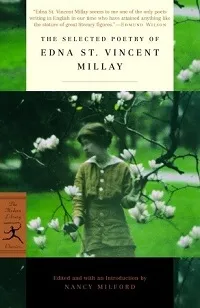 The Selected Poetry by Edna St. Vincent Millay (1892–1950)
The Selected Poetry by Edna St. Vincent Millay (1892–1950)
“One of America’s most celebrated poets—and winner of the Pulitzer Prize in 1923—Edna St. Vincent Millay defined a generation with her passionate lyrics and intoxicating voice of liberation.”
100 Selected Poems by E. E. Cummings (1894–1962)
“[100 Selected Poems] contains one hundred of Cummings’s wittiest and most profound poems, harvested from thirty-five of the most radically creative years in contemporary American poetry. These poems exhibit all the extraordinary lyricism, playfulness, technical ingenuity, and compassion for which Cummings is famous.”The Selected Poems by Federico Garcia Lorca (1898–1937)
“Lorca is admired all over the world for the lyricism, immediacy and clarity of his poetry, as well as for his ability to encompass techniques of the symbolist movement with deeper psychological shadings. But Lorca’s poems are, most of all, admired for their beauty. Undercurrents of his major influences–Spanish folk traditions from his native Andalusia and Granada, gypsy ballads, and his friends the surrealists Salvador Dali and Luis Bunuel–stream throughout Lorca’s work.Selected Poems by Langston Hughes (1901–1967)
“With the publication of his first book of poems, The Weary Blues, in 1926, Langston Hughes electrified readers and launched a renaissance in black writing in America. The poems Hughes wrote celebrated the experience of invisible men and women: of slaves who ‘rushed the boots of Washington’; of musicians on Lenox Avenue; of the poor and the lovesick; of losers in ‘the raffle of night.'”Selected Poems by W.H. Auden (1907–1973)
“Wystan Hugh Auden was an Anglo-American poet, best known for love poems such as Funeral Blues, poems on political and social themes such as September 1, 1939 and The Shield of Achilles, poems on cultural and psychological themes such as The Age of Anxiety, and poems on religious themes such as For the Time Being and Horae Canonicae.” New and Collected Poems: 1931–2001 by Czeslaw Milosz (1911–2004)
New and Collected Poems: 1931–2001 by Czeslaw Milosz (1911–2004)
“New and Collected Poems: 1931—2001 celebrates seven decades of Czeslaw Milosz’s exceptional career. Widely regarded as one of the greatest poets of our time, Milosz is a master of probing inquiry and graceful expression. Milosz worked with the Polish Resistance movement in Warsaw during World War II and defected to France in 1951. His work brings to bear the political awareness of an exile.”
Collected Poems by Robert Hayden (1913–1980)
“In Hayden’s work the actualities of history and culture became the launching places for flights of imagination and intelligence. His voice—characterized by musical diction and an exquisite feeling for the formality of pattern—is a seminal one in American life and literature.”The Essential Gwendolyn Brooks by Gwendolyn Brooks (1917–2000)
“‘If you wanted a poem,’ wrote Gwendolyn Brooks, ‘you only had to look out of a window. There was material always, walking or running, fighting or screaming or singing.’ From the life of Chicago’s South Side she made a forceful and passionate poetry that fused Modernist aesthetics with African-American cultural tradition, a poetry that registered the life of the streets and the upheavals of the 20th century.View With a Grain of Sand: Selected Poems by Wislawa Szymborska (1923–2012), Translated by Stanislaw Baranczak and Clare Cavanagh
“In these one-hundred poems Wisława Szymborska portrays a world of astonishing diversity and richness, in which nature is wise and prodigal and fate unpredictable, if not mischevious. With acute irony tempered by a generous curiousity, she documents life’s improbability as well as its transient beauty.”Self-Portrait in a Convex Mirror by John Ashbery (1927–2017)
“Not only in the title poem, which the critic John Russell called ‘one of the finest long poems of our period,’ but throughout the entire volume, Ashbery reaffirms the poetic power that made him an outstanding figure in contemporary literature. These are poems ‘of breathtaking freshness and adventure in which dazzling orchestrations of language open up whole areas of consciousness no other American poet as ever begun to explore.'”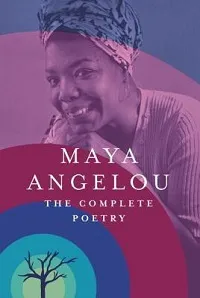 The Complete Poetry by Maya Angelou (1928–2014)
The Complete Poetry by Maya Angelou (1928–2014)
“Throughout her illustrious career in letters, Maya Angelou gifted, healed, and inspired the world with her words. Now the beauty and spirit of those words live on in this new and complete collection of poetry that reflects and honors the writer’s remarkable life.”
Diving Into the Wreck by Adrienne Rich (1929–2012)
“In her seventh volume of poetry, Adrienne Rich searches to reclaim—to discover—what has been forgotten, lost, or unexplored. ‘I came to explore the wreck. / The words are purposes. / The words are maps. / I came to see the damage that was done / and the treasures that prevail.’ These provocative poems move with the power of Rich’s distinctive voice.The Poetry of Derek Walcott, 1948–2013 by Derek Walcott (1930–2017)
“Across sixty-five years, Walcott grapples with the themes that have defined his work as they have defined his life: the unsolvable riddle of identity; the painful legacy of colonialism on his native Caribbean island of St. Lucia; the mysteries of faith and love and the natural world; the Western canon, celebrated and problematic; the trauma of growing old, of losing friends, family, one’s own memory.”Ariel by Sylvia Plath (1932–1963)
“When Sylvia Plath died, she not only left behind a prolific life but also her unpublished literary masterpiece, Ariel. This collection showcases the beloved poet’s brilliant, provoking, and always moving poems, including ‘Ariel’ and once again shows why readers have fallen in love with her work throughout the generations.”The Collected Poems by Audre Lorde (1934–1992)
“Collected here for the first time are more than three hundred poems from one of this country’s major and most influential poets, representing the complete oeuvre of Audre Lorde’s poetry. Lorde published nine volumes of poetry which, in her words, detail ‘a linguistic and emotional tour through the conflicts, fears, and hopes of the world I have inhabited.'”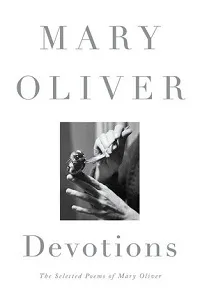 Devotions: The Selected Poems of Mary Oliver by Mary Oliver (1935–2019)
Devotions: The Selected Poems of Mary Oliver by Mary Oliver (1935–2019)
“Carefully curated, these 200 plus poems feature Oliver’s work from her very first book of poetry, No Voyage and Other Poems, published in 1963 at the age of 28, through her most recent collection, Felicity, published in 2015. This timeless volume, arranged by Oliver herself, showcases the beloved poet at her edifying best.”
Opened Ground: Selected Poems, 1966–1996 by Seamus Heaney (1939–2013)
“In ‘Digging,’ the first poem in Opened Ground, Heaney likens his pen to both spade and gun. With these metaphors in place, he makes clear his difficult poetic task: to delve into the past, both personal and historic, while remaining ever mindful of the potentially fatal power of language.”The Best Poetry Books by Living Writers
The Wild Iris by Louise Glück (1943–)
“This collection of stunningly beautiful poems encompasses the natural, human, and spiritual realms, and is bound together by the universal themes of time and mortality. With clarity and sureness of craft, Gluck’s poetry questions, explores, and finally celebrates the ordeal of being alive.”Neon Vernacular: New and Selected Poems by Yusef Komunyakaa (1947–)
“[Neon Vernacular is] an award-winning poet’s testimony of the war in Vietnam. Yusef Komunyakaa is an American poet who teaches at New York University and is a member of the Fellowship of Southern Writers.”What the Living Do: Poems by Marie Howe (1950–)
“Informed by the death of a beloved brother, here are the stories of childhood, its thicket of sex and sorrow and joy, boys and girls growing into men and women, stories of a brother who in his dying could teach how to be most alive.” How We Became Human: New and Selected Poems, 1975–2002 by Joy Harjo (1951–)
How We Became Human: New and Selected Poems, 1975–2002 by Joy Harjo (1951–)
“This collection gathers poems from throughout Joy Harjo’s twenty-eight-year career, beginning in 1973 in the age marked by the takeover at Wounded Knee and the rejuvenation of indigenous cultures in the world through poetry and music. How We Became Human explores its title question in poems of sustaining grace.”
Selected Poems by Rita Dove (1952–)
“Here in one volume is a selection of the extraordinary poems of Rita Dove, who, as the nation’s Poet Laureate from 1993 to 1995, brought poetry into the lives of millions of people. Precisely yet intensely felt, resonant with the voices of ordinary people, Rita Dove’s Selected Poems is marked by lyric intensity and compassionate storytelling.”Given Sugar, Given Salt by Jane Hirshfield (1953–)
“In poems complex in meaning yet clear in statement and depiction, Hirshfield explores questions of identity, aging, death, and of time and the variegated gifts brought by its relentless passage. Whether meditating upon a button, the role of habit in our lives, or the elusive nature of our relationship to sleep, Hirshfield brings each subject into a surprising and magnified existence.”Urban Tumbleweed: Notes From a Tanka Diary by Harryette Mullen (1953–)
“Urban Tumbleweed is the poet Harryette Mullen’s exploration of spaces where the city and the natural world collide. Written out of a daily practice of walking, Mullen’s stanzas adapt the traditional Japanese tanka, a poetic form suited for recording fleeting impressions, describing environmental transitions, and contemplating the human being’s place in the natural world.”Picture Bride by Cathy Song (1955–)
“The winning volume in the 1982 Yale Series of Younger Poets competition is Cathy Song’s Picture Bride, a book about people and their innumerable journeys. Distinguished poet Richard Hugo says, ‘Cathy Song’s poems are flowers: colorful, sensual, and quiet, and they are offered almost shyly as bouquets to those moments in life that seemed minor but in retrospect count the most. She often reminds a loud, indifferent, hard world of what truly matters to the human spirit.'”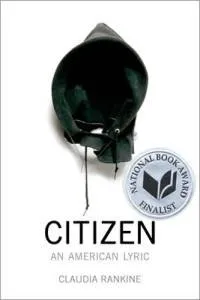 Citizen: An American Lyric by Claudia Rankine (1963–)
Citizen: An American Lyric by Claudia Rankine (1963–)
“Claudia Rankine’s bold new book recounts mounting racial aggressions in ongoing encounters in twenty-first-century daily life and in the media. Some of these encounters are slights, seeming slips of the tongue, and some are intentional offensives in the classroom, at the supermarket, at home, on the tennis court with Serena Williams and the soccer field with Zinedine Zidane, online, on TV-everywhere, all the time.”
Monument: Poems New and Selected by Natasha Trethewey (1966–)
“Monument, Trethewey’s first retrospective, draws together verse that delineates the stories of working class African American women, a mixed-race prostitute, one of the first black Civil War regiments, mestizo and mulatto figures in Casta paintings, Gulf coast victims of Katrina.”Book of Hours: Poems by Kevin Young (1970–)
“Young’s frank music speaks directly to the reader in these elemental poems, reminding us that the right words can both comfort us and enlarge our understanding of life’s mysteries.”Wade in the Water: Poems by Tracy K. Smith (1972–)
“In Wade in the Water, Tracy K. Smith boldly ties America’s contemporary moment both to our nation’s fraught founding history and to a sense of the spirit, the everlasting. These are poems of sliding scale: some capture a flicker of song or memory; some collage an array of documents and voices; and some push past the known world into the haunted, the holy.”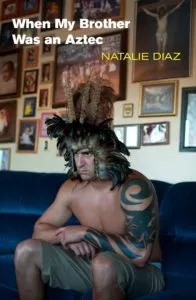 When my Brother Was an Aztec by Natalie Díaz
When my Brother Was an Aztec by Natalie Díaz
“This debut collection is a fast-paced tour of Mojave life and family narrative: A sister fights for or against a brother on meth, and everyone from Antigone, Houdini, Huitzilopochtli, and Jesus is invoked and invited to hash it out.”
Bestiary: Poems by Donika Kelly
“Across this remarkable first book are encounters with animals, legendary beasts, and mythological monsters–half human and half something else. Donika Kelly’s Bestiary is a catalogue of creatures–from the whale and ostrich to the pegasus and chimera to the centaur and griffin. Among them too are poems of love, self-discovery, and travel, from ‘Out West’ to ‘Back East.'”Want more recommendations of the best poetry books available? Check out this list of 50 of the Best Poetry Books by Contemporary Authors, 50 Must-Read 2019 Poetry Collections, and even more poetry posts.






